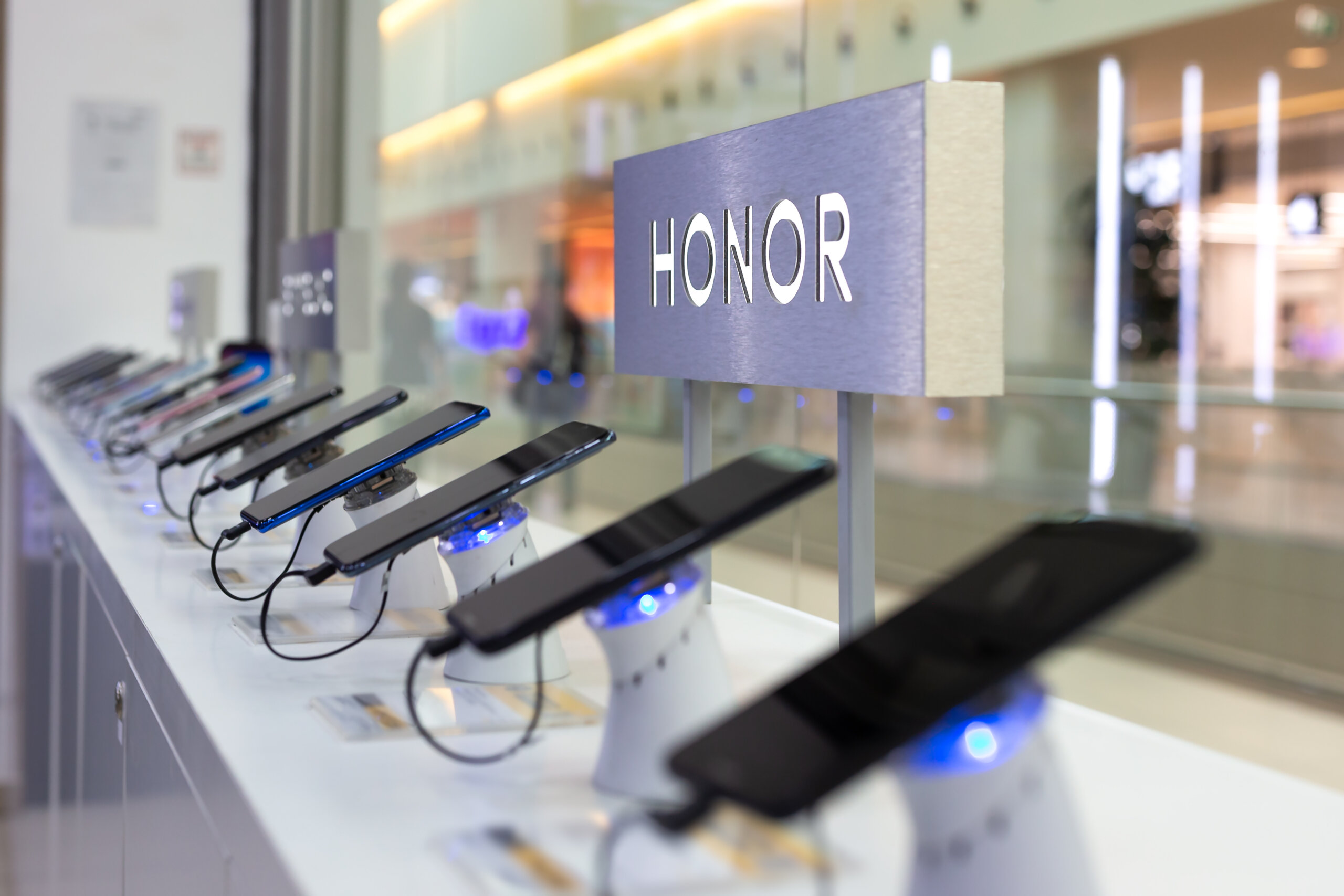
George Zhao, CEO of Chinese smartphone company Honor, stressed the importance of data protection in the evolving landscape of artificial intelligence. Zhao’s remarks highlight the necessity of safeguarding user data for AI to truly be valuable, a sentiment he reiterated against the backdrop of Apple’s recent announcement regarding personalized AI tools set to launch in the U.S. this fall.
Honor has already integrated several AI functionalities in its devices. For instance, users can open text messages and other notifications just by looking at them, and eliminate copy-paste steps by directly linking Yelp-like apps to navigation or ride-hailing services. Zhao introduced new AI tools at this week’s Mobile World Congress in Shanghai, including those for detecting deepfakes in videos and simulating lenses that reduce myopia during prolonged screen use.
Zhao emphasized Honor’s commitment to keeping AI operations that involve personal data limited to the smartphone itself, a practice known as on-device AI. This method contrasts with AI tools that rely on cloud computing. “Without data security and user privacy protection, AI will become worthless,” Zhao asserted in Mandarin, translated by CNBC. “This has always been one of our value propositions.”
Honor maintains that user data does not leave the device, a principle Zhao is adamant about. Apple’s AI product, Apple Intelligence, also uses on-device processing and leverages server-based models for more complex requests, ensuring that user data is never stored.
Honor’s on-device AI is self-developed, though the company collaborates with Baidu and Google Cloud for additional AI features. Zhao believes AI development is heading in two directions: network (cloud) AI, which is becoming increasingly powerful, and on-device AI, which he sees as becoming more intimate and supportive of consumers.
Zhao pointed out the challenge of balancing AI capabilities with energy usage and data privacy, noting that many generative AI applications, such as OpenAI’s ChatGPT, require extensive computing power that exceeds a single smartphone’s battery capacity, necessitating cloud usage and raising data transfer security concerns.
“Our goal in the future development of smartphones is to make the individual stronger,” Zhao stated. He expressed a belief that mobile devices should empower individuals rather than the systems collecting vast amounts of user data. This vision drives Honor’s ongoing innovations and commitment to data privacy.
Honor’s Magic V2 folding phone, launched in China last summer and in Europe earlier this year, has been recognized for its innovation, winning the “Best Smartphone in Asia Award” at the Shanghai MWC. The Magic V2’s notable feature is its thinness, nearly comparable to an iPhone.
Honor is set to release the Magic V3 in July, equipped with the company’s latest AI functions. When asked if the new foldable would be even thinner, Zhao responded, “Of course, we need to challenge ourselves, right?”
The interplay between advanced AI capabilities and the necessity for robust data privacy measures is a critical issue for manufacturers. Zhao noted that systems collecting significant amounts of user data to deliver personalized features could overshadow the individuals using them. He envisions a future where smartphones empower individuals by enhancing their capabilities without compromising their privacy.
| Key Point | Description |
|---|---|
| On-Device AI | AI operations involving personal data are limited to the smartphone. |
| Data Security | Emphasis on protecting user privacy as essential to AI’s value. |
| Collaboration | Partnership with Baidu and Google Cloud for additional AI features. |
| Balancing Capabilities and Privacy | Striving to empower users while maintaining data security and privacy. |
| Innovations in AI | New tools for detecting deepfakes and reducing myopia during screen use. |
- Data Privacy Priority: Zhao emphasizes that AI is worthless without strong data security and privacy measures.
- On-Device AI: Honor’s AI operations involving personal data remain confined to the device.
- Innovation in AI: Introduction of AI tools for deepfake detection and myopia reduction at MWC Shanghai.
- Future Goals: Honor aims to empower users by making smartphones more capable while ensuring privacy.
- Upcoming Releases: Magic V3, featuring the latest AI functions, is set to launch in July.
George Zhao’s insights underline the critical balance between leveraging artificial intelligence and ensuring robust data privacy. Honor’s commitment to on-device AI reflects a broader industry shift towards protecting user data while delivering sophisticated AI capabilities. As AI continues to evolve, the emphasis on privacy and user empowerment will likely remain central to Honor’s strategy and innovations.
Featured Image courtesy of Tech Wire Asia
